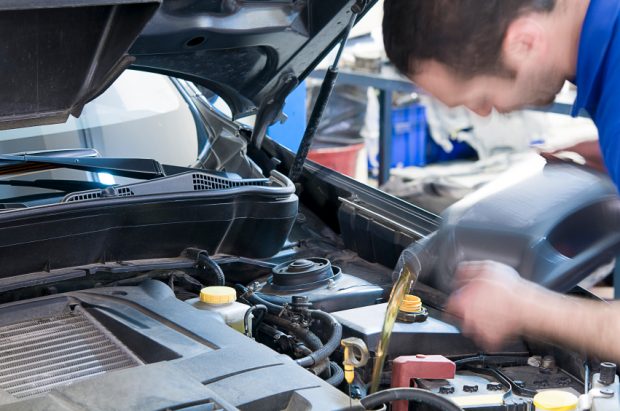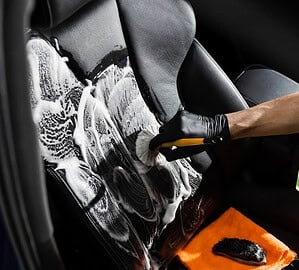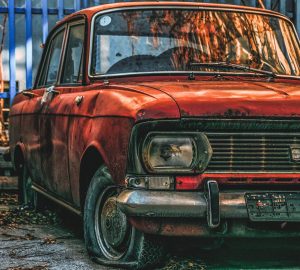On average during our lifetime we make very few large purchases, houses or apartments would typically be the biggest purchase that we make. Cars for most people come second when it comes to making large single purchases. Cars can be considered an investment, they can save you money and the inconvenience of using public transport, save you money on flights if you don’t mind a bit of a drive. And give you the freedom to spend your free time going to the beach or fishing, whatever your hobby is. But cars should not be taken for granted.
The average car on the road today is 8 years old, and the average age before being scrapped is approximately 14 years old. To get your car to either of these numbers requires you to do your part. Regular maintenance is key to the lifespan of your car, and should not be neglected. There are plenty of easy ways to that you can help your car yourself with a bit of basic auto knowledge. Knowing when to change the air filter, check the oil levels, and if necessary fill up the oil to prevent engine failure. Checking the tires for wear and if needed buy Michelin tires for a good solid and reliable all weather experience. Below are some tips on easy and cheap ways to prevent your car from aging prematurely.

Changing Your Filters On a Regular Basis
Your car’s oil and air filters are a very important part of your car. The functions they perform are integral to the health of the vehicle and should be changed regularly. They will be part of any scheduled service that your local garage or dealership has planned. But if you fancy doing a bit of DIY maintenance and saving yourself some money give it a try. There are many instructional videos and online manuals to give you guidance and help in changing the filters.
It is even possible to prolong the life of the air filter by simply cleaning it thoroughly from time to time, but you should still stick to the manufacturer’s advice when it comes time to replace it. There are also many cheap options available to buy new, but these are often made to poor standards and can cause damage to your car. Consult your owner’s manual and buy the recommended type for the best performance of your car.
Replace Your Spark Plugs and Leads
Another job that you can do yourself to help maintain your car. Cars have become more and more sophisticated over the years, with onboard computers monitoring everything the car does and this makes people reluctant to try even simple maintenance themselves. But not much has changed with the simple spark plug. Always check your owner’s manual before any self-made changes, stick to the service guidelines provided. Inspecting a spark plug check for:
- No signs of melting
- No signs of obvious wear or deposits
- A light brown insulator and electrode
A spark plug that has wear could just be age, but it could also indicate that there is a potential problem with your engine. If the plugs have been recently been replaced but have developed a large gap between the insulator and electrode, this could be an indication of the car engine underperforming. This is not good and it is time to take it to a qualified service technician. If the leads show signs of aging, including cracks you should take the car to be looked at your local garage. If you feel you have the correct knowledge and tools you can do it yourself following the manufacturer’s guidelines. Note, diesel engines do not have spark plugs.
Topping Up The Cars Fluids Regularly
Fluids in a car are considered to be the lifeblood of the vehicle and failure to top them up or change them can have very serious consequences for your car. Check your engine oil every fortnight, park on level ground, and open the hood. Use the dipstick provided and wipe it with a clean cloth and dip it into the oil. When you take it back out the oil mark should be between the minimum and maximum level and a yellowy-brown or brown color, if you have a gasoline powered engine. Dark, dirty oil on the dipstick indicates that it is time to change the oil. If you have a diesel engine it is not a cause for concern as during the combustion process soot will naturally collect in the oil.
Whilst you are checking the oil you should check the coolant reservoir, if it is low top it up with 50% distilled water and 50% antifreeze. Don’t forget the windshield washer bottle. Do not be tempted to use a salt based solution, this can damage your paintwork.
Check Your Tires For Wear And Pressure
Tires are arguably the most important safety feature on your car, checking them once a week could save your and other people’s lives. Underinflated tires are not only dangerous but can cause your car to burn more fuel, checking the pressure and inflating them to the car and tire manufacturer’s guidelines could save you money. It is important to note that tire pressure often varies between the front and rear tires. Many experts suggest rotating tires between the front and the rear but it is best to have the tires with the most grip on the rear. It is much easier to control a car that has slightly worn front tires than the rear.
Checking the tire pressure yourself is easy with a handheld tire gauge, these are available online or in any hardware store with an auto section. Checking for wear to the treads can also be easy, find out the local legal tread limits, usually around 2mm depth, and use a simple measuring device. If worn below the limits you should consider changing immediately.
Try to Keep to The Service Schedule
It is very important to keep to the service schedule, usually, it is either every 10000 miles traveled or yearly. Check the handbook provided when you bought the car for the dates and what work may be required. Most newer and modern cars have great internal warning systems that will light up on your dashboard indicating a problem. This is a cue to take it to the local garage or dealership for repair, the warning light should not be ignored even if it goes off.
The number of tasks performed during a full service includes:
- Checking fluid levels and the quality of the fluids present
- Ensuring that there are no fluid leaks
- Excessive exhaust emissions
- Correct steering operations, tire wear, and pressure
- The gearbox and clutch are working correctly
- The suspension works as it should
There are so many things that need to be checked that your car could be in the garage for days, this should not be an excuse for not taking it to be serviced. Whilst some things are minor, other problems could have serious safety implications for you, your passengers, and other road users.
Summary
To keep your investment running for years to come and still maintain that new feel when you first bought it, keep on top of some basic maintenance. And regularly have it serviced by a professional.



